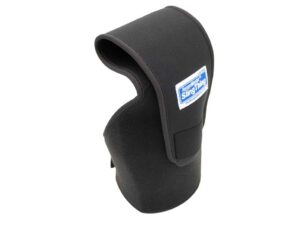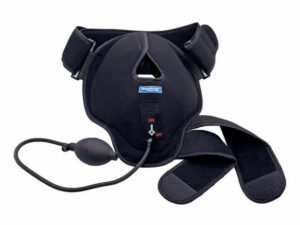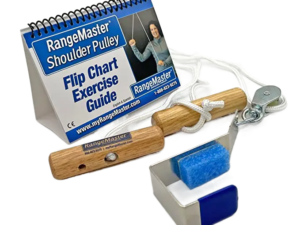You may be thinking about surgery if you suspect a torn rotator cuff due to sudden injury and are experiencing shoulder pain and weakness. You may have also developed Rotator Cuff Disease.
But the first thing that you should know is surgery doesn't fully reverse problems that occur over time with wear and tear of the rotator cuff. You should also know that you may be able to avoid shoulder surgery altogether by performing simple at home range of motion exercises with a tool I will discuss below. Surgery should always be the last resort.
Surgery may also be required if you have signs of rotator cuff disease and your symptoms are not getting better after 3 to 6 months.
Signs of rotator cuff disease include:
- Weakness in arm or shoulder with trouble lifting objects overhead
- Stiffness or pain
- Dull ache deep within the shoulder
- A change in arm strength from one side to the other (this can happen if your rotator cuff is torn)
A doctor may also recommend surgery if you have a tear in your rotator cuff that's causing pain and weakness especially if it's affecting how well you do daily activities or things that you love like golf, tennis, gardening etc.
Signs of torn rotator cuff include:
- A pop or snap felt or heard during shoulder motion
- Inability to raise arm overhead without pain
- Inability to lift weights because of weakness, especially if this is a new problem for you
- Decreased range of motion in the shoulder
- Shoulder pain that gets worse with overhead activity
It should be noted that doctors are less likely to recommend surgery if you're older than age 80.
If you're considering surgery, talk to your doctor about all the treatment choices and other things to try in an effort to avoid surgery so you can make an educated decision about what's best for you and your specific circumstance.
The good news is that many people are able to avoid rotator cuff surgery by performing simple at home range of motion exercises with a shoulder pulley.
RangeMaster® Shoulder Pulleys
-
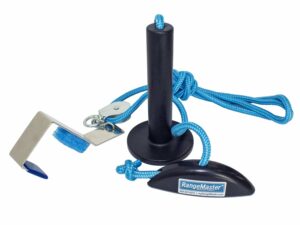
Neutral Handle Pulley
$20.97 Add to cart -
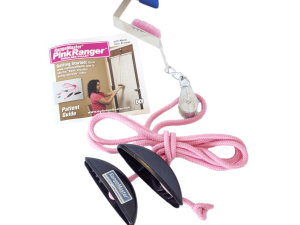
PinkRanger™ Shoulder Pulley
$15.97 – $16.97 Select options -
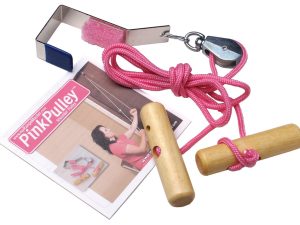
PinkPulley™ Cancer Care Shoulder Pulley
$18.57 Add to cart -
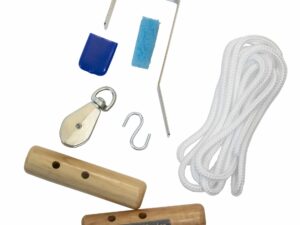
DIY Ranger Shoulder Pulley Kit
$14.77 Add to cart -
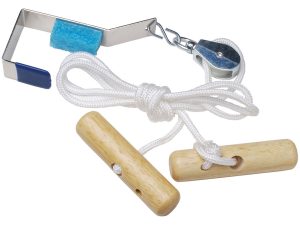
EconoRanger™ Shoulder Pulley
$15.77 – $16.77 Select options -
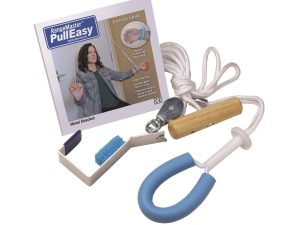
Pull-Easy™ Shoulder Pulley with grip-free hold
$21.27 – $22.27 Select options -
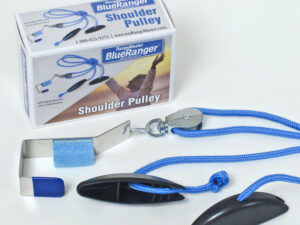
BlueRanger™ Shoulder Pulley (Retail Package)
$17.37 – $18.37 Select options -
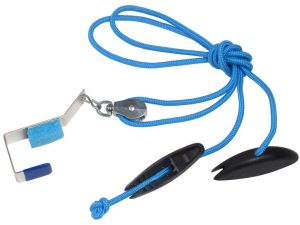
BlueRanger™ Shoulder Pulley
$15.97 – $16.97 Select options
A shoulder pulley is a device that can be used for self-treatment or in conjunction with physical therapy to help you regain the use of your arm and shoulder after an injury or procedure. It's also known as an orthopedic pulley because it helps you recover from various orthopedic conditions.
The goal of using a shoulder pulley is to restore normal range of motion and strengthen the muscles around the joint. You should start out slowly and gradually increase how much you use your arm until you're doing regular activities again without pain or other symptoms. You may need to continue using the shoulder pulley for several months to regain shoulder strength and dexterity. It's also highly recommended to continue using in perpetuity to maintain healthy, pain free range of motion, especially as we age and our joints begin to wear out.
People who want to avoid surgery may benefit by using a shoulder pulley but should still seek medical advice about potential rotator cuff disease. Rotator cuff disease is a serious condition that typically requires medical intervention from a physical therapist or other health care professional.

